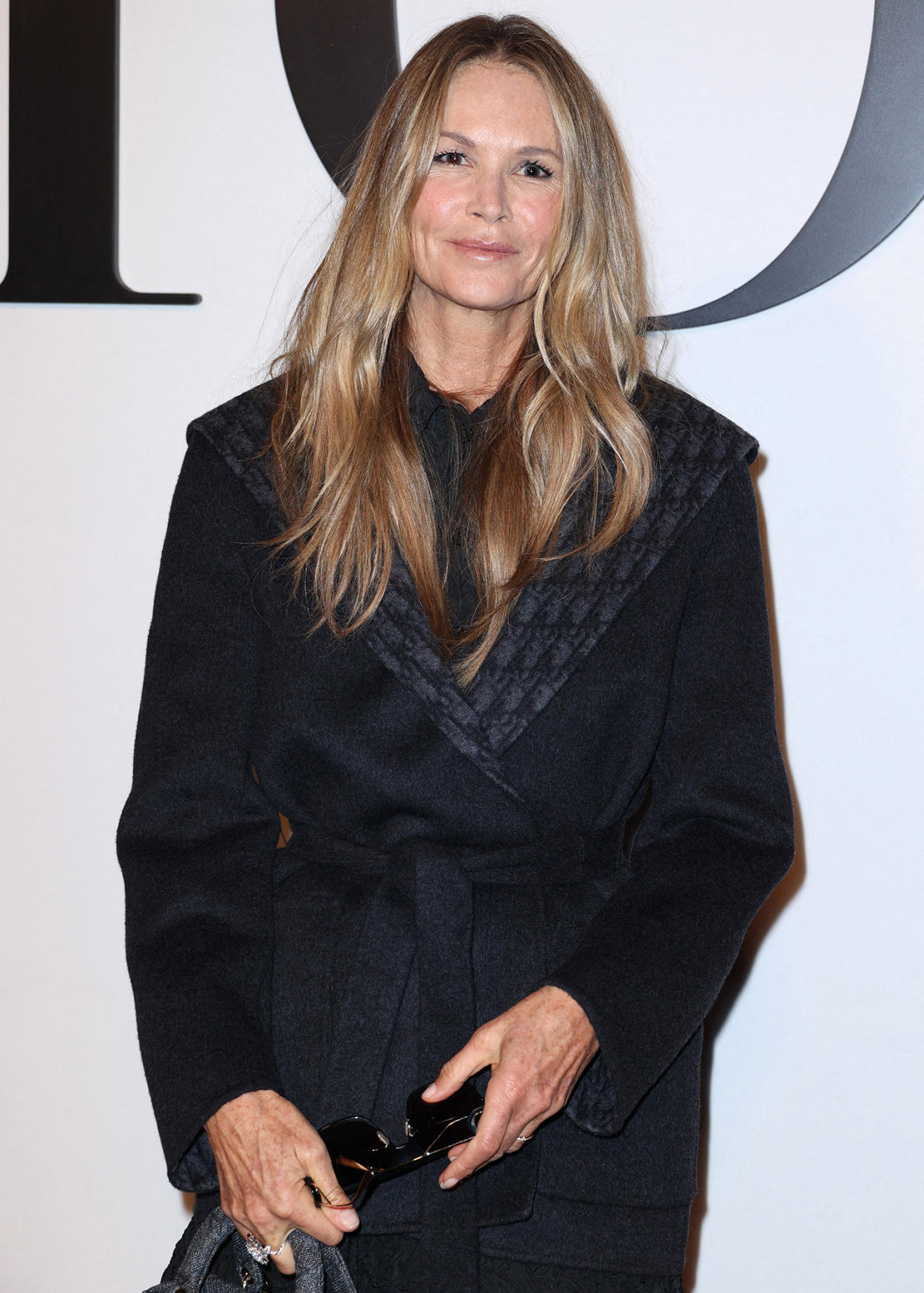Elle Macpherson and More Stars Who Tried Non-Traditional Treatments for Cancer

When it comes to treating cancer, every patient has their own story.
In September 2024, Elle Macpherson revealed for the first time that she was diagnosed with breast cancer after undergoing a lumpectomy seven years ago.
While she was advised to undergo a mastectomy, chemotherapy, hormone therapy and breast reconstruction surgery, the supermodel decided on “an intuitive, heart-led, holistic approach” after praying and meditating on a beach in Miami.
“I realized I was going to need my own truth, my belief system to support me through it,” Macpherson told Australia’s Women’s Weekly magazine. “And that’s what I did.”
Elle Macpherson’s Ups and Downs Over the Years: Early Modeling Days to Secret Breast Cancer Battle
Every patient should consult with a doctor before developing a treatment plan, the American Cancer Society cautions, adding on its website that "choosing alternative treatment instead of mainstream cancer treatments might put you at serious risk. Delays or interruptions in standard treatment can give the cancer more time to grow."
But Macpherson isn’t the first celebrity to share their non-traditional approaches to fighting cancer. Keep reading to see how Olivia Newton-John, Farrah Fawcett and more stars incorporated alternative treatments in their fight against cancer:
Farrah Fawcett

The actress was originally diagnosed with anal cancer in September 2006. After undergoing chemotherapy and radiation treatments, she was declared cancer-free by her doctors in February 2007.
A few months later, doctors discovered that the cancer had returned. Fawcett chose to receive “alternative treatments” for cancer in Germany.
“She was declared 100 percent cancer free and then it came back,” close friend Craig Nevius explained to People. “She was discouraged by the treatments she got here. The fact that it recurred after all that she went through was heartbreaking.” In June 2009, Fawcett died in Los Angeles at the age of 62.
Suzanne Somers

In her book, Knockout: Interviews with Doctors Who Are Curing Cancer and How to Prevent Getting It in the First Place, Somers explained why she declined chemotherapy after being diagnosed with breast cancer.
"Cancer's an epidemic," the actress and entreprenuer told NBC News in 2009. "And yet we keep going back to the same old pot, because it's all we've got. Well, this is a book about options. … I've been on the other side of the bed. And it's powerful to have information."
In July 2023, Somers confirmed that her breast cancer had returned. She died three months later at the age of 76.
Don Imus

In March 2009, the radio host learned through a biopsy that he had Stage 2 prostate cancer. Although he was advised to begin radiation treatments, Imus initially chose to treat the disease holistically. According to the New York Times, he had been “dutifully ingesting habanero peppers and Japanese soy supplements” as part of a regimen partly devised by his wife, a natural foods proponent, and monitored by a urologist at Columbia University Medical Center.
In December 2019, Imus died at the age of 79 from complications of lung disease.
Olivia Newton-John

When Newton-John was told in May 2017 that her breast cancer — first discovered and treated in 1992 — had metastasized and spread to her bones, her team said the star would be completing photon radiation therapy.
In addition to conventional medical treatments, the beloved singer and Grease actress also turned to "plant medicine" during her breast cancer journey.
"Olivia has been a symbol of triumphs and hope for over 30 years sharing her journey with breast cancer," her husband, John Easterling, said in a statement to People at the time of her death at age 73 in August 2022. "Her healing inspiration and pioneering experience with plant medicine continues with the Olivia Newton-John Foundation Fund, dedicated to researching plant medicine and cancer."
Stars Who Beat Breast Cancer: Julia Louis-Dreyfus, Cynthia Nixon and More
Steve Jobs

In 2003, Jobs spent nearly nine months refusing to undergo surgery for his pancreatic cancer. Because of his fascination with Eastern mysticism in his youth, the Apple co-founder believed in alternative herbal treatments. In August 2004, however, Jobs told Apple employees he underwent a successful operation to remove his cancer.
In the book Steve Jobs: A Biography, biographer Walter Isaacson said Jobs later regretted his decision to delay surgery as his health declined. "I think that he kind of felt that if you ignore something, if you don't want something to exist, you can have magical thinking,” Isaacson told CBS News. "He wanted to talk about it, how he regretted it. … I think he felt he should have been operated on sooner."
Jobs later died in August 2011 at the age of 56.
